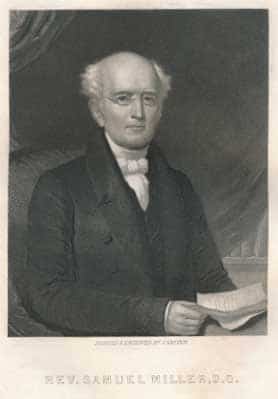This Day in Presbyterian History:
Remembering October 31
It is my earnest hope that no reader is going to wonder why this writer wants them to remember Halloween! October 31st, and specifically October 31, 1517, is the date of the beginning of the Protestant Reformation. On this date, an obscure Augustinian monk by the name of Martin Luther nailed ninety-five theses to the church door in Wittenburg, because that was the usual custom of advertisement for the people’s attention. It was the twenty-first century bulletin board. Luther nailed them up at noon sharp because it was the time of the most frequent feasts. Professors, students, and the common people would be coming from all four corners to the church, which was filled up with relics for transfers of credit.
A lot of Protestants, while hearing of this incident of the nailing of ninety-five theses, think that they were ringing endorsements of Protestant theology. In reality, they were more Roman Catholic than Protestant. There is no protest against the Pope and the Roman Catholic church, or any of her doctrines, not even against indulgences. They were silent about justification by faith alone. They were primarily opposed to the abuse of indulgences.
But while the form is Romish, the spirit and aim is Protestant. They represent a state of transition between twilight and daylight. We must read between the lines, as the leaders of the Roman Catholic church did in the sixteenth century. As they did, they saw a logical drift which sought to undermine the whole fabric of Romanism.
Luther hoped that there would be a scholarly debate of the abuse of indulgences. But no one came to debate him. Instead, with the recent invention of the printing press, the copies of the ninety-five theses were sent all over the empire. The pope had a copy within two weeks. The common people read them and rejoiced over them. Luther was the talk of Germany. There was a trumpet call being sounded for what later on became the Protestant Reformation.
Words to live by: In less than five years, in 2017, we will celebrate the five-hundredeth anniversary of the Protestant Reformation. Will there be a revival of its themes in your church and more important, in your heart, such as Scripture alone, Christ alone, Grace Alone, Faith Alone, and Only to the Glory of God? That sums up what Luther, and Calvin, and Knox thundered to the masses and the visible church. Reflect on the story of Martin Luther and the Protestant Reformation in your heart, home, and church.
Through the Scriptures: Luke 10 – 13
Through the Standards: The definition of a sacrament in confession and catechisms.
WCF 27:1
“Sacraments are holy signs and seals of the covenant of grace, immediately instituted by God, to represent Christ and His benefits; and to confirm our interest in Him: as also, to put a visible difference between those that belong unto the Church and the rest of the world; and solemnly to engage them to the service of God in Christ, according to His Word.”
WLC 162 — “What is a sacrament?
A. A sacrament is an holy ordinance instituted by Christ in his church, to signify, seal, and exhibit unto those that are within the covenant of grace, the benefits of his mediation; to strengthen and increase their faith, and all other graces; to oblige them to obedience; to testify and cherish their love and communion one with another; and to distinguish them from those that are without.”
WSC 92 — “What is a sacrament?
A. A sacrament is an holy ordinance instituted by Christ, wherein, by sensible signs, Christ, and the benefits of the new covenant, are represented, sealed, and applied to believers.”

